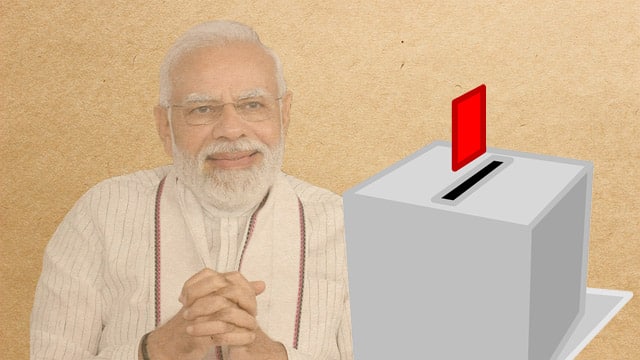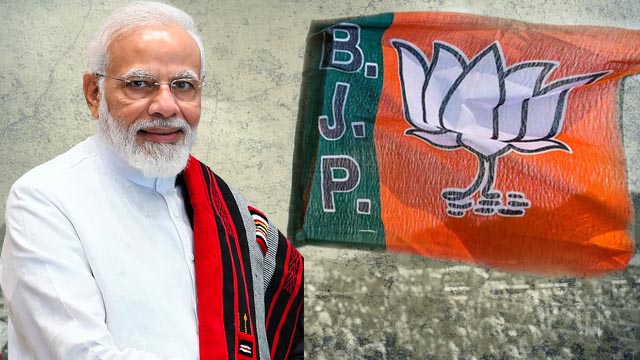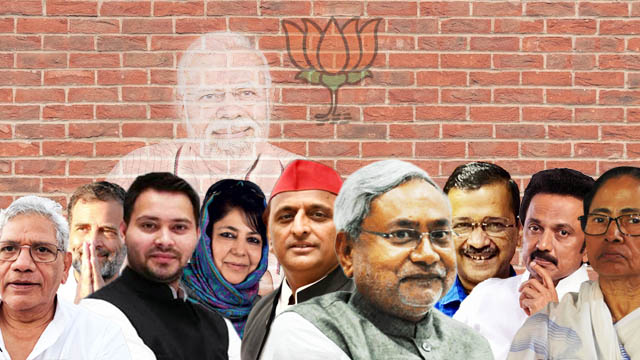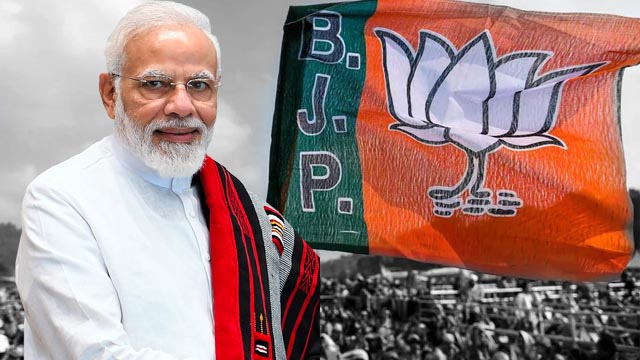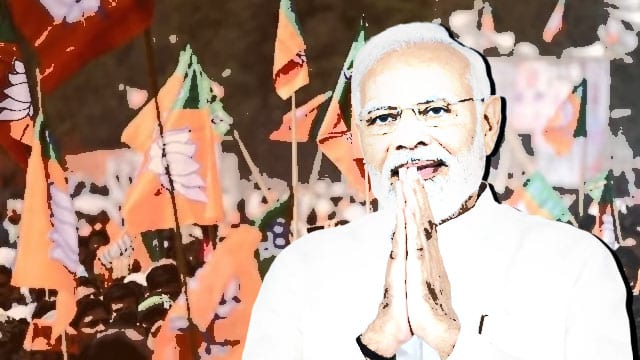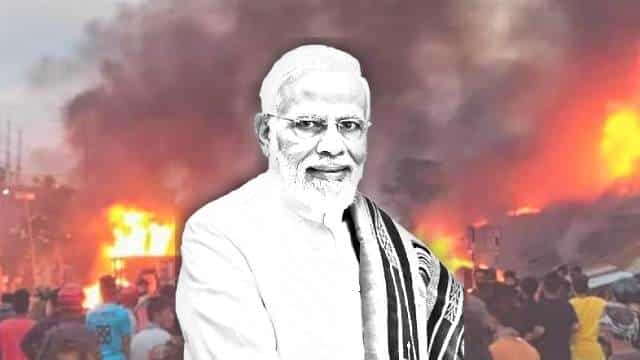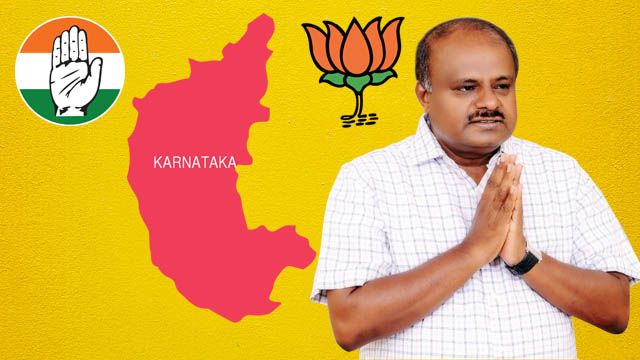The Government of India has constituted a panel to explore the possibility of a ‘One Nation, One Election’ in the country. A notification about the panel members, headed by former president Ram Nath Kovind, is likely to be issued soon.
This declaration comes alongside a special Parliament session called by the Union government from September 18th to 22nd. The surprise announcement of the session has led to speculations that the government is planning to introduce a bill on ‘One Nation, One Election’.
In fact, over the years, Prime Minister Narendra Modi has strongly pushed for the idea of simultaneous Lok Sabha and state assembly polls, and the decision to task Kovind to look into it underscores the government’s seriousness as a host of elections approach.
‘One Nation, One Election’ was one of the components of Modi’s ruling Bharatiya Janata Party’s (BJP) election manifesto for the 2014 Lok Sabha elections.
The concept refers to holding simultaneous polls across the country. The proposal is to conduct elections for Lok Sabha and all state assemblies simultaneously.
In India, the general elections to elect the members of the lower house of the Parliament, ie, Lok Sabha, and state assembly polls are held separately whenever the incumbent government’s tenure ends or it gets dissolved for some reason.
Assembly polls are due in five states in November-December and will be followed by the Lok Sabha elections in May-June next year.
However, the recent moves by the government have thrown open the possibility of advancing the general elections and some state polls, which are scheduled after and with the Lok Sabha contest.
What do supporters of ‘One Nation, One Election’ say?
The supporters of ‘One Nation, One Election’ often underline that once implemented, it would bring down the overall expenditure on the electoral process. With so many states, there’s always an election in some or the other part of the country, leading to excessive expenditure in the process – both by the Election Commission of India (ECI) and the contestants.
Another argument favouring the ‘One Nation, One Election’ scheme is that it will lead to a more efficient administration. During elections, the entire state machinery focuses on conducting a free and fair electoral process, which impacts the everyday administration because officials are engaged in polling duties. Simultaneous elections will likely boost voter turnout, making it convenient for the electorate to cast the ballot at once.
The idea of a ‘One Nation, One Election’ is expected to bring consistency and continuity in policies and programmes of the Union government and states, the supporters have been arguing. During the Lok Sabha polls, once the model code of conduct is enforced, no state can launch new projects or schemes until the polls are concluded.
What challenges does the ‘One Nation, One Election’ scheme pose?
The biggest challenge in the way of the ‘One Nation, One Election’ is to sync the terms of the various state legislative assemblies with those of the Lok Sabha. There is also no clarity on dealing with situations like midterm polls or the President’s rule in case any party fails to get the majority.
Moreover, once it’s implemented, the ‘One Nation, One Election’ scheme will result in the pre-term dissolution of several state assemblies. This will violate the rights of the states and the people’s mandate, which the non-BJP states may oppose.
Regional political parties argue that having the two elections simultaneously would hamper their prospects because they won’t be able to highlight local issues prominently. Furthermore, they fear they can’t compete with national parties in money and election strategies either.
At the same time, the concept of ‘One Nation, One Election’ has been euphemistically used and propagated by the ruling BJP, which could weaken and paralise the federal structure of India.
The BJP’s aspirations
Under Modi’s leadership, the BJP has been ruling India since 2014. As of now, the BJP rules 10 out of 28 Indian states directly and has coalition governments in four more states. No other parties have similar clout in Indian politics. This gives the BJP a competitive leverage vis-a-vis its opponents.
However, as the ruling party, the BJP is facing several controversial and embarrassing issues such as rising unemployment, price-hike of essential commodities, a crumbling economy, intimidation of civil liberties, minimising of democratic space, increasing hunger and food insecurity, the conflict between Kukis and Meiteis in Manipur, the Adani scandal, etc.
The far-right Hindutva-driven party knows that it would be a tough challenge for it to sweep the 2024 elections if the Opposition unites against it. The formation of the INDIA coalition by several opposition parties has caused discomfort for the BJP, as it has hitherto managed to consolidate its vote share by ensuring the splitting of its opponents’ votes.
However, the BJP also realises that if there are simultaneous polls under ‘One Nation, One Election’, the fissures within the loosely-held INDIA coalition will widen, as most of its constituents are bitter enemies of each other in the state elections.
Thus, with the ‘One Nation, One Election’ scheme, the BJP can ensure that the internal strife of the INDIA alliance results in its collapse like a house of cards. It will help the BJP consolidate its votes and divide the votes of its opponents.
The disarrayed Opposition
The BJP’s opponents suffered an ignominious defeat at the hands of the BJP in the 2019 Lok Sabha elections when Modi used sheer jingoistic rhetoric and Islamophobia to win a landslide victory. They know well that Modi can easily use any surprise element to stun and baffle them as it did during the demonetisation drive or the purported ‘surgical strikes’ along the India-Pakistan border.
Although the Union government hasn’t declared that the upcoming special session of the Parliament would discuss the ‘One Nation, One Election’ scheme, the Opposition is visibly worried about such a proposal.
However, such a proposal will take a long course as it will be referred to the Law Commission and the Committee under Kovind, whose members list isn’t publicised yet, will submit a report and then only a bill can be tabled in the Lok Sabha.
Moreover, this would require at least five amendments in the Constitution of India, including changes to Article 83 relating to the duration of Houses of Parliament, Article 85 relating to the dissolution of the Lok Sabha by the President, Article 172 relating to the duration of the state legislative assemblies, Article 174 relating to the dissolution of the state legislative assemblies and, finally, Article 356 relating to the imposition of President’s Rule in a state.
The ‘One Nation, One Election’ scheme would also require the ECI to change the setup of elections and make extra provisions by upgrading the electronic voting machines and building systems and processes for managing simultaneous polls. At present, Andhra Pradesh, Arunachal Pradesh, Odisha and Sikkim have their assembly elections amid the Lok Sabha elections, while assembly elections in Haryana, Jharkhand, Maharashtra take place after the general elections.
Although such an amendment to the Constitution of India would require the ratification by half of the states, and the BJP rules 34.5% of Indian states, it can still get the required numbers with the help of its ally governments in the northeastern states like Meghalaya, Mizoram, Nagaland, Sikkim and other states like Odisha and Andhra Pradesh, where the governments are friendly towards the BJP.
In such a situation, if the BJP uses its brute majority in the Parliament and manages to wean away state governments of non-aligned parties and its allies in the North East, the Opposition’s plan to take on the BJP may suffer a setback, and Modi can again sweep the elections and help the BJP win more states.

